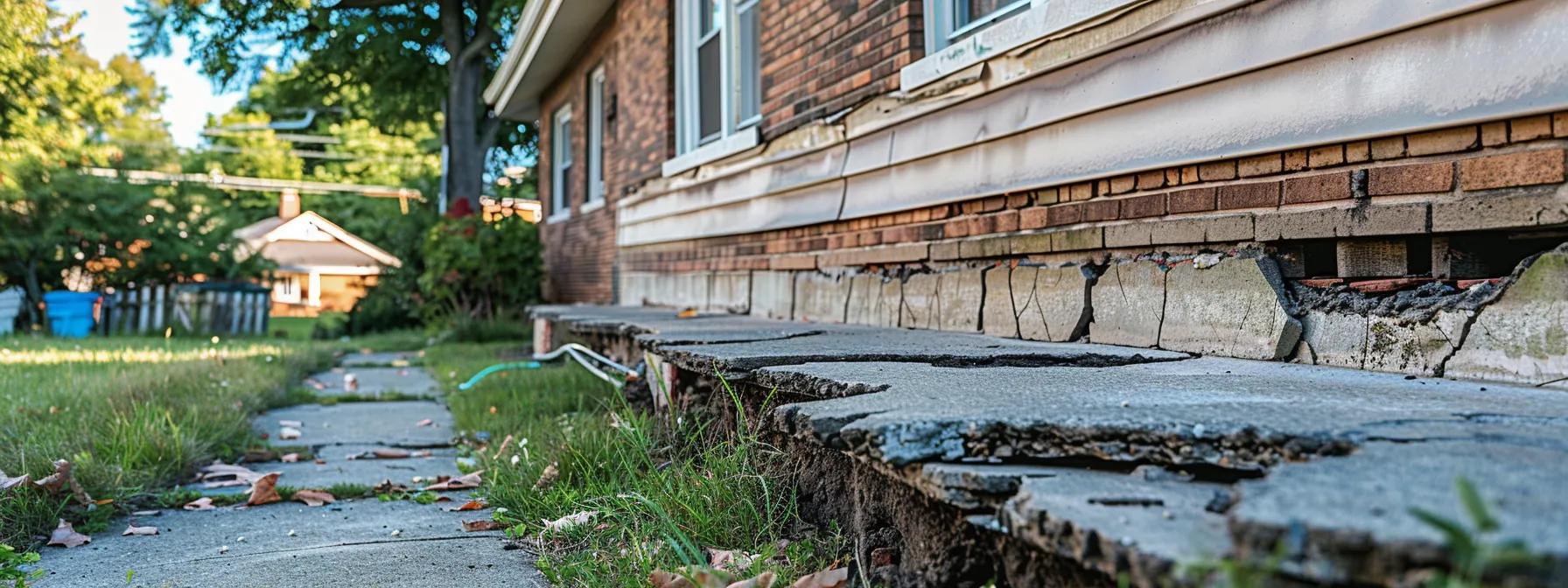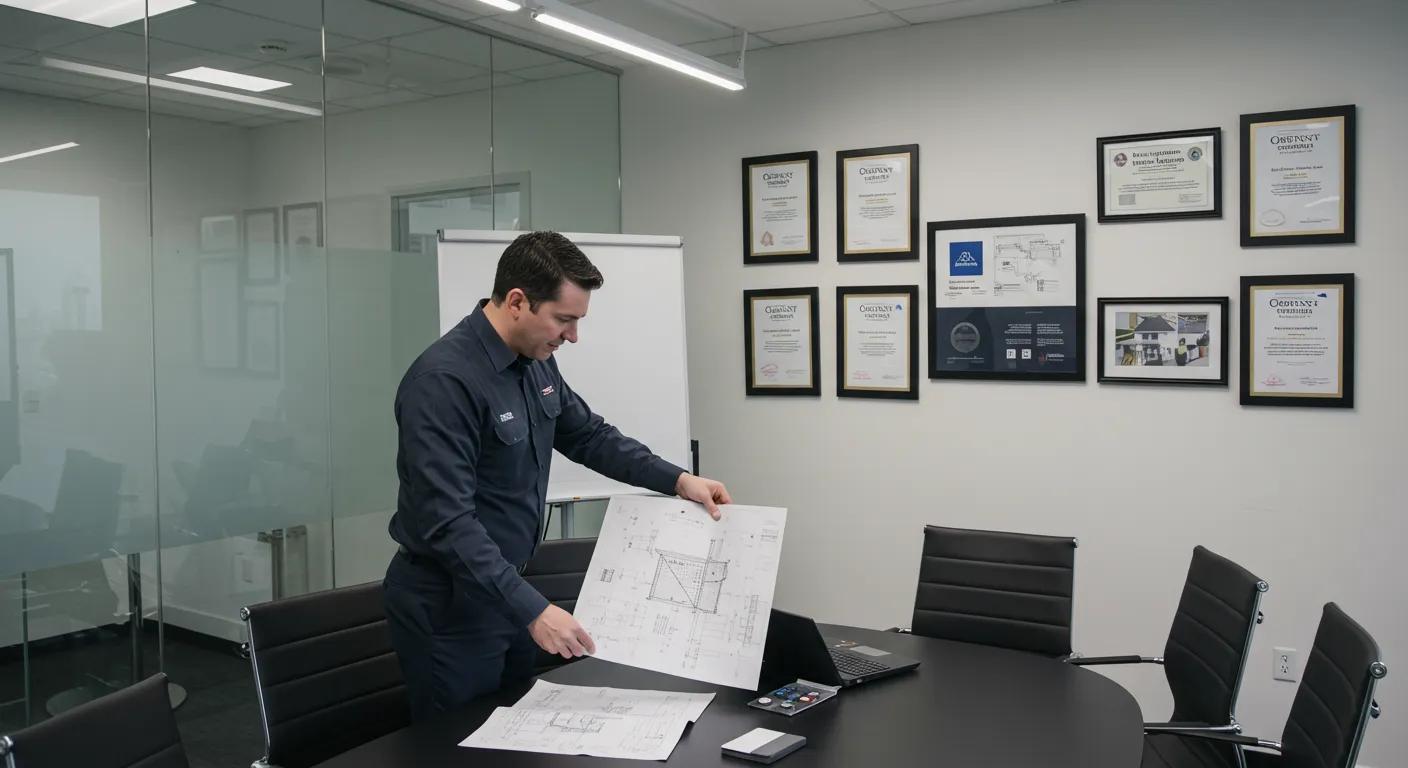What You Need to Know About FoundationRepair Costs
Foundationrepair is essential for preserving a home’s structural integrity and market value. Homeowners facing issues like cracks in walls, uneven floors, or basement water problems must decide whether to invest in repairs. This article explains the various costs associated with foundationrepair, how these expenses affect property value, and why fixing structural issues before selling can be a smart financial decision. By understanding repair expenses, return on investment (ROI), and available repair methods, homeowners can negotiate better deals and plan for long-term benefits.
How Foundation Repair Costs Influence Your Home’s ValueFoundationRepair Costs and Their Impact on Property Value
Foundationrepair costs vary widely depending on the severity of the damage, the repair method chosen, and regional market differences. Expenses can range from a few hundred dollars for minor crack repairs to tens of thousands for major overhauls. Key cost drivers include soil composition (clay, sand, or silt), local labor rates, and material availability (concrete, steel piers, or foam). Often, experts recommend a comprehensive inspection to determine the necessary repair solutions and provide a detailed cost estimate.
Typical Expenses Associated With Fixing Foundation Issues
The first step is obtaining a reliable estimate. Typical costs include diagnostic fees, labor, materials, and permits. On average, moderate repairs might cost between $2,000 and $10,000. For example, minor stabilization using epoxy injections or polyurethane foam can be less expensive than installing steel piers to correct differential settlement, where varying soil compressibility causes uneven damage. In some cases, bundled service packages that include waterproofing are offered to address basement moisture and prevent further deterioration. Unexpected costs may arise if hidden issues such as concealed water damage or prior neglected repairs are discovered.
How Repair Expenditures Relate to Your Home’s Overall Worth
Foundationrepair is both a maintenance expense and a strategic investment. Repairs that improve foundation stability enhance overall property value and boost buyer confidence during appraisal. Conversely, a poorly maintained or unrepaired foundation can reduce market value significantly. Addressing structural issues prior to sale can recoup a large percentage of the repairexpense—often up to 70%—in increased home value, making this investment critical for long-term resale prospects.
Assessing the Return on Investment for Foundation Repairs
Evaluating the ROI for foundation repairs involves comparing repair costs against the increase in home value and the prevention of future issues. For example, an $8,000 repair might raise a home’s value by $12,000, resulting in a 50% ROI. Additionally, such repairs prevent damage to plumbing and electrical systems affected by shifting foundations. Transferable warranties on repairs further enhance buyer confidence during resale, making it easier to secure better mortgage terms or refinancing opportunities.
Factors That Influence the Price of Foundation Work
Several factors determine foundationrepair costs, including the extent of structural damage, local service availability, soil conditions, and the chosen repair method (e.g., slab jacking, epoxy consolidation, or steelpier installation). Soils that expand and contract, like clay, often necessitate more extensive underpinning. Regional factors such as labor costs and building codes also play a role. Contractors may employ technology like ground-penetrating radar during inspections to design a repair plan that best preserves the home’s value while keeping costs in check.
The Direct Connection Between FoundationRepair Cost and Property Value

There is a direct link between the cost of foundation repairs and a home’s market value. Unrepaired foundation damage can significantly lower a home’s worth, while effective repairs safeguard and even enhance its value. Buyers may discount properties with obvious structural issues or request allowances for future repairs, making timely intervention crucial for long-term market performance.
How Unrepaired Foundation Damage Depreciates Home Value
Unaddressed issues such as wall cracks, uneven flooring, moisture intrusion, and pest infestations (e.g., termites) can alarm inspectors and buyers, reducing market value by 10% to 20%. Such damage often leads to further complications like insurance claims or refinancing problems, intensifying the perceived risk and decreasing buyer willingness to pay a premium.
The Positive Influence of Completed Foundation Repairs on Market Price
In contrast, a well-documented and warranty-backed foundationrepair increases buyer confidence and market price. Repairs that come with inspection reports and contractor guarantees signal proper maintenance. Experts suggest that a thoroughly completed repair can boost selling prices by up to 15%, streamlining the sales process and minimizing price negotiations related to repair contingencies.
Calculating the Net Gain in Property Value After Repair Costs
To assess the financial benefit, homeowners should compare repair expenses to the anticipated rise in market value. For example, if repairs cost $10,000 and add approximately $15,000 to the home’s value, the net gain is $5,000. Additionally, a repaired foundation reduces future maintenance costs and potential complications at sale, helping homeowners achieve a better net equity position.
Disclosing Foundation Repairs When Selling Your Home
Full disclosure of prior foundation repairs is critical during a sale. Providing documentation such as photographs, warranty papers, and repair invoices builds buyer trust and minimizes appraisal disputes. Certified repairs by accredited companies can lead to a smoother transaction, fewer renegotiations, and more competitive offers.
What You Need to Know About FoundationRepair Costs Before Selling
Before listing a property, understanding and addressing foundationrepair costs is vital. This section outlines steps to obtain repair estimates, factor costs into the selling price, negotiate with buyers, and avoid the pitfalls of ignoring foundation issues.
Obtaining Accurate Estimates for FoundationRepair Expenses
Accurate estimates require hiring accredited inspectors and foundation specialists. These experts use tools such as laser leveling, moisture meters, and geotechnical surveys to assess damage. Detailed estimates include costs for labor, materials, permits, and anticipated hidden problems. Requesting bids from multiple contractors helps ensure a fair market price and provides documentation useful for buyer negotiations.
Factoring Repair Costs Into Your Asking Price
Once the repair estimates are obtained, homeowners should adjust the listing price to reflect the investment. In some cases, minor repairs may be offered as a credit or allowance at closing. Evaluating local market trends and comparable properties helps in determining an optimal price that reflects both the repair work and overall property value.
Negotiating With Buyers Regarding FoundationRepair Allowances
Many sellers negotiate with buyers by offering repair credits at closing instead of lowering the asking price. This approach allows buyers to manage repairs with their preferred contractors while still providing reassurance through documentation and third-party inspections. By addressing potential risks upfront, sellers maintain a higher asking price and reduce the time on the market.
The Perils of Ignoring Foundation Issues Pre-Sale
Failing to repairfoundation problems before selling can result in lower offers and extended market time. Buyers may back out after discovering structural issues during inspections, and undisclosed damage can lead to legal disputes post-sale. Addressing foundation problems is a proactive measure that protects both market value and the overall selling process.
Weighing FoundationRepair Cost vs Property Value Increase

Homeowners often face a balance between repair costs and the potential increase in property value. This section explains scenarios where repair costs may not be fully recouped and when repairs can provide a substantial financial uplift.
Scenarios Where Repair Costs May Exceed Value Gains
Sometimes, especially in older neighborhoods with generally lower market values, the cost of major foundation repairs may not be fully recouped upon sale. In such cases, deep-seated issues compounded by regional economic factors might lead to an unfavorable cost-to-value ratio. Homeowners may consider partial repairs if full repair does not proportionately increase property value.
Identifying When Foundation Repairs Offer Substantial Property Value Uplift
In markets with high property values, well-executed foundation repairs can significantly boost resale potential. When repairs are completed using methods backed by transferable warranties, they serve as a selling point that increases buyer confidence and encourages higher offers. The long-term benefits of a stable foundation often justify the repairexpense.
Long-Term Financial Benefits of Addressing Foundation Problems
Beyond immediate value increase, repairing foundation issues reduces ongoing maintenance costs, enhances energy efficiency, and prevents collateral damage to plumbing and electrical systems. These long-term benefits contribute to overall safety and lower insurance premiums, reinforcing that foundationrepair is an investment in a home’s future marketability.
Comparing Repair Costs to Potential Losses From an Unsold Property
If foundation problems remain unaddressed, the potential losses—such as reduced sale prices, extended market time, and future repair liabilities—can far exceed the cost of repairs. In competitive markets, properties with unresolved issues often command lower offers, making timely repair a financially sound decision.
How Different FoundationRepair Methods Affect Home Valuation
The repair method chosen can significantly impact home valuation. This section compares common techniques such as steelpier installation, slab jacking, and epoxy crack injections, focusing on stability, longevity, and buyer confidence.
The Perceived Value of Various Repair Techniques
Certain repair methods, like steelpier installation, are viewed as premium solutions due to their reliability and long-lasting performance. Conversely, less invasive methods such as epoxy injections may only address superficial issues. Buyers favor repairs that clearly stabilize the foundation and reduce the risk of future movement, which directly influences both short-term offers and long-term property appreciation.
Transferable Warranties and Their Contribution to Property Value
A transferable warranty on foundation repairs is a valuable asset. Warranties that transfer with the property reassure buyers about the quality of the work and reduce perceived risk. This added security can lead to smoother transactions and higher sale prices, as buyers view the home as a safer investment.
Impact of Repair Quality on Buyer Confidence and Offers
High-quality, well-documented repair work enhances buyer confidence significantly. Detailed before-and-after photos, inspection reports, and contractor certifications act as proof of a job well done, enabling sellers to command a premium price. Such documentation not only supports a higher appraisal but also leads to faster sales.
Documenting Repairs to Substantiate Property Value
Comprehensive documentation—such as diagnostic reports, cost breakdowns, warranty details, and photographic evidence—is essential to verify repair quality during resale. These records streamline the appraisal process and provide a strong negotiating position with buyers and lenders alike.
Securing Your Property Value Through Smart FoundationRepair Choices

Maximizing property value from foundation repairs involves making informed, strategic decisions. This section outlines best practices for selecting repair methods, reputable contractors, and leveraging warranties to protect long-term home value.
Selecting Reputable Contractors to Protect Your Investment
Choosing a contractor with a proven track record is vital. Homeowners should research local companies, review testimonials, and verify credentials and licenses. A contractor who provides a detailed work plan and offers transferable warranties adds confidence for future buyers, ensuring repairs are durable and professionally executed.
Understanding How Foundation Integrity Supports Overall Home Value
A stable foundation is the cornerstone of a home’s structure. It not only provides a safe living environment but also supports the overall market appeal and equity of the property. Addressing minor issues early can prevent cascading damage to walls, floors, and ceilings, thereby maintaining the home’s long-term value.
The Role of Foundation Stability in Future Property Appraisals
During appraisals, foundation stability is a critical factor. A well-maintained foundation supported by thorough repair records and warranties reduces risk in the eyes of lenders and buyers, leading to more favorable mortgage terms and higher valuations.
Making Informed Decisions About FoundationRepair Expenditures
Ultimately, the decision to repair should be based on a careful analysis of both immediate costs and future benefits. Obtaining multiple estimates, comparing repair options, and considering local market trends help ensure that the repair expenditure enhances property value, simplifies negotiations, and provides peace of mind.
Frequently Asked Questions
Q: What factors most influence foundationrepaircosts? A: Costs depend on the extent of structural damage, soil type, local labor rates, and the repair method. Inspections involving laser leveling, moisture detectors, and geotechnical surveys help provide accurate estimates.
Q: Can repairing foundation issuessignificantly increase home value? A: Yes. A properly repaired foundation boosts buyer confidence, potentially increasing property value by up to 15%, especially when supported by documentation and transferable warranties.
Q: How do I obtain reliable estimates for foundationrepair? A: Hire accredited inspectors and request bids from reputable contractors. Detailed diagnostics ensure estimates cover labor, materials, permits, and potential hidden issues.
Q: What repairmethods offer the best ROI in foundationrepairs? A: Premium solutions like steel pier installation and full underpinning offer long-term stability and warranties, typically yielding higher resale value compared to quick fixes like epoxy injections.
Q: Should foundationrepairs be disclosed to potential buyers? A: Absolutely. Full disclosure, along with detailed repair records and warranties, builds trust, minimizes appraisal issues, and streamlines negotiations.
Q: What are the risks of leaving foundationissues unaddressed? A: Ignoring foundation problems may lead to further structural deterioration, lower market value, extended time on the market, and even legal disputes over undisclosed damage.
Q: How does the choice of repaircontractor affect property value? A: A reputable contractor ensures high-quality workmanship and proper documentation, which are critical for maintaining and increasing property value during future appraisals.
Final Thoughts
Foundationrepair is a strategic investment that safeguards structural integrity while enhancing market value. Homeowners who invest in quality repairs and provide comprehensive documentation position their property for higher resale prices and smoother transactions. By understanding repair costs, choosing the best repair methods, and ensuring full disclosure, sellers can negotiate effectively with buyers and protect their long-term equity.


